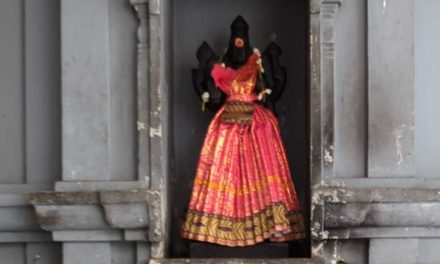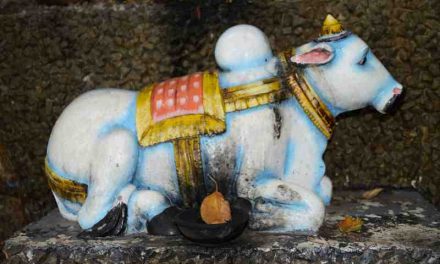The 108 Upanishads are a collection of ancient Sanskrit texts that contain some of the central philosophical concepts of Hinduism, such as the idea of Atman (the self or soul) and Brahman (the absolute reality). They are also known as the Vedanta (the end or conclusion of the Vedas), which is one of the six systems of Indian philosophy. The Upanishads document the transition from the ritualistic Vedic religion to a more mystical and meditative vision of spirituality.
The Upanishads are a collection of ancient Indian texts that form the philosophical backbone of Hinduism. They are considered the concluding part of the Vedas, the sacred scriptures of ancient India. The Upanishads are sometimes referred to as Vedanta, which means “the end of the Vedas” or “the culmination of knowledge.” These texts explore profound philosophical and spiritual concepts and are a primary source of Hindu philosophy and spirituality.
Here’s an overview of the Upanishads:
1. Origins: The Upanishads are believed to have been composed between 800 BCE and 200 BCE, although the exact dating of individual Upanishads can vary. They are part of the Vedic tradition and are often associated with the concluding portions of the four Vedas: Rigveda, Yajurveda, Samaveda, and Atharvaveda.
2. Key Themes:
- Brahman: The Upanishads emphasize the concept of Brahman, the ultimate, formless, and all-pervading reality. Brahman is often described as the source and essence of all existence.
- Atman: Another central concept is Atman, the individual soul or self. The Upanishads explore the relationship between Atman and Brahman, ultimately asserting that Atman and Brahman are one and the same.
- Moksha: The Upanishads discuss the concept of Moksha, which is liberation from the cycle of birth and death (samsara). This liberation is achieved by realizing the true nature of self and its identity with Brahman.
- Karma: The Upanishads also touch upon the law of karma, which dictates that one’s actions have consequences that affect their future lives. Understanding and transcending karma is vital for attaining liberation.
The Upanishads are divided into two categories: the principal or major Upanishads, which are the oldest and most important, and the minor or new Upanishads, which are later and less authoritative. The principal Upanishads are 12 to 14 in number, depending on the tradition, and include texts such as the Brihadaranyaka, the Chandogya, the Katha, the Mundaka, and the Taittiriya. The minor Upanishads are more than 90 in number and include texts such as the Yoga, the Narada Parivrajaka, and the Surya.
The Upanishads explore various themes such as the nature of reality, the origin and purpose of life, the relation between the individual and the universal, ethical, and spiritual values, and the methods of attaining liberation from suffering. The Upanishads are not systematic treatises but rather dialogues, stories, poems, and hymns that express different perspectives and insights. The Upanishads have influenced many schools of Hindu thought, such as Advaita (non-dualism), Vishishtadvaita (qualified non-dualism), and Dvaita (dualism), as well as other religions such as Buddhism, Jainism, Sikhism, and even Western philosophy.
3. Influence: The Upanishads have had a profound influence on Indian philosophy, spirituality, and religious thought. They have significantly shaped the development of Hinduism as well as later philosophical schools like Vedanta, Yoga, and others.
4. Philosophical Schools: The Upanishads have been a source of inspiration for various schools of thought within Hinduism, such as Advaita Vedanta, which stresses the non-dual nature of reality, and Dvaita Vedanta, which emphasizes the duality between the individual soul and the divine.
5. Transcending Religion: While the Upanishads are integral to Hinduism, their philosophical and spiritual insights have transcended religious boundaries and have influenced the broader spiritual landscape of India and the world.
In summary, the Upanishads are a collection of ancient Indian texts that explore profound philosophical and spiritual concepts, including the nature of reality, the self, liberation, and karma. They are a cornerstone of Hindu philosophy and have had a far-reaching impact on the spiritual and philosophical traditions of India and beyond.
The Upanishads are written in Sanskrit and are typically in the form of dialogues between a teacher and a student. They deal with a wide range of topics, including the nature of reality, the relationship between the individual self and the universal self, the path to liberation, and the meaning of life.
Some of the key teachings of the Upanishads include:
- Brahman is the ultimate reality. It is infinite, eternal, and unchanging. Brahman is the source of all creation and is present in all things.
- The individual self (atman) is identical to Brahman. The atman is the true nature of the individual and is beyond the mind and ego.
- The path to liberation is the path of self-realization. It is the path of realizing the identity of the atman and Brahman. This is achieved through meditation, spiritual study, and practice.
- Truth is essential for spiritual progress. We must be honest with ourselves and others in order to achieve liberation.
- We are all interconnected and we are all one with Brahman. This means that we should treat each other with respect and compassion.
The Upanishads have had a profound influence on Hindu thought and practice for centuries. They are also studied and respected by people of other faiths and traditions. The Upanishads are a source of wisdom and inspiration for people from all walks of life.
The 108 Upanishads are given in the Muktika Upanishad, which is a late text that claims to be the last Upanishad. The list of 108 Upanishads is divided into five categories based on the Vedas they belong to and the topics they deal with. Here is the list of 108 Upanishads according to the Muktika Upanishad:
Rig Veda (10 Upanishads)
- Aitareya
- Kaushitaki
- Nadabindu
- Atmabodha
- Nirvana
- Mudgala
- Akshamala
- Tripura
- Saubhagyalakshmi
- Bahvrichi
Sama Veda (16 Upanishads)
- Kena
- Chandogya
- Arunika
- Maitrayani
- Maitreyi
- Vajrasuchi
- Yogachudamani
- Vasudeva
- Mahat
- Sanyasa
- Avyakta
- Kundika
- Savitri
- Rudrakshajabala
- Jabaladarsana
- Jabali
Shukla Yajur Veda (19 Upanishads)
- Isavasya
- Brihadaranyaka
- Jabala
- Hamsa
- Paramahamsa
- Subala
- Mantrika
- Niralamba
- Trisikhibrahmana
- Mandalabrahmana
- Advayataraka
- Paingala
- Bhikshuka
- Turiyatita
- Adhyatma
- Yajnavalkya
- Satyayani
- Tarasara
- Muktika
Krishna Yajur Veda (32 Upanishads)
- Katha
- Taittiriya
- Brahma
- Kaivalya
- Svetasvatara
- Garbha
- Narayana
- Amritabindu
- Amritanada
- Kalagnirudra
- Kshurika
- Sarvasara
- Sukharahasya
- Tejobindu
- Dhyanabindu
- Brahmavidya
- Yogatattva
- Dakshinamurti
- Skanda
- Sariraka
- Yogasikha
- Ekakshara
- Akshi
- Avadhuta
- Katharudra
- Rudrahrudaya
- Yogakundalini
- Panchabrahma
- Pranaagnihotra
- Varaha
- Kalisantaranaand
- Sarasvatirahasya
Atharva Veda (31 Upanishads)
- Prasna
- Mundaka
- Mandukya
- Atharvasira
- Atharvasikha
- Brahajjabala
- Nrsimhatapini
- Narada Parivrajaka
- Sita
- Sarabha
- Tribadvibhutimahanarayanaand
- Ramarahasya
- Ramatapini
- Sandilya
- Paramahamsaparivrajaka
- Annapurna
- Surya
- Atma
- Pasupatabrahma
- Parabrahma
- Tripuratapini
- Devi
- Bhavana
- Bhasmajabala
- Ganapati
- Mahavakhya
- Gopalatapini
- Krishna
- Hayagriva
- Dattatreya
- Garuda
The Upanishads, those ancient gems of Indian wisdom, are far from being mere parchments etched with ink. These portals are like shimmering doorways that open up to a realm of awareness beyond the confines of the mind. This text beautifully captures the profound nature of truly experiencing something. It emphasises the importance of going beyond mere reading and embarking on a transformative journey that uncovers the truth of our existence.
Picture a lotus flower, tightly closed, its pristine petals protecting the hidden beauty inside. The human spirit is often burdened by the weight of the world, its true potential obscured by the illusions of ego and desire. The Upanishads, in their exquisite prose, delicately guide the lotus to bloom, with every verse serving as a soft enchantment and every practice as a nurturing droplet for self-awareness.
One begins to truly understand the boundaries of our senses as they embark on this journey. The Upanishads invite us to transcend the temporary joys and worries of the physical realm, encouraging us to delve inward and discover the wellspring of genuine contentment within ourselves. By practicing meditation, we can quiet the constant stream of thoughts in our minds and create space for the gentle guidance of our inner selves to emerge.
As we explore further, we come across the notion of Atman, the everlasting Self that exists within every individual, a radiant spark of the divine fire that never fades. This concept goes beyond mere intellectual understanding and taps into a profound sense of knowing that resonates within us. This text beautifully captures the enduring nature of our inner selves, which persist despite the ever-changing nature of our physical and mental states.
The Upanishads provide a wide range of paths to this realisation, showcasing their profound wisdom. There is a lot of discussion about the path of Jnana, which involves the pursuit of knowledge and wisdom through self-inquiry and study. Some people highlight Bhakti, which involves a deep devotion to a specific deity and a humble surrender of the ego to the divine. However, some individuals choose to embrace the path of Karma Yoga, where they selflessly serve others and view every action as a contribution to the cosmic dance of existence.
The Upanishads serve as a guiding light, leading us towards the ultimate goal of liberation, regardless of the chosen path. This is not about avoiding the world, but rather about embracing a transformation within it. The beauty of our existence lies in the deep understanding of the intricate connections between all elements of the world. We come to realise our unity with the universe and the divine essence that brings life to every aspect of nature.
This realisation is not a singular occurrence, but rather a continuous voyage. The Upanishads serve as constant companions, always reminding us of the truth we have glimpsed. This piece beautifully captures the ability of these entities to provide comfort during difficult times, clarity when things are unclear, and happiness in the simple moments of existence.
Everyone has the opportunity to experience the profound spiritual awareness of the Upanishads. This opportunity is available to all those who approach it with sincerity and a desire for knowledge. A beautiful journey starts with taking that first step, embracing introspection, and attuning ourselves to the gentle guidance of our inner wisdom.
If you’re looking for something beyond the ordinary, if you desire a glimpse of the limitless within the limited, then delve into the pages of an Upanishad. Allow its wisdom to be your guiding light, let its verses ignite your inspiration, and experience the transformative power that awakens the depths of your soul. Always keep in mind that the journey starts from within, and anyone brave enough to seek it can find the path to freedom.
References:
(1) The Names of 108 Upanishads, complete list – Hinduism Facts. https://www.hinduismfacts.org/the-names-of-108-upanishads/
(2) Upanishads – Wikipedia. https://en.wikipedia.org/wiki/Upanishads
(3) List of 108 Upanishads According To The Muktikopanishad – Hindu Website. https://www.hinduwebsite.com/upalist.asp
(4) Vedanta | Hindu philosophy | Britannica. https://www.britannica.com/topic/Vedanta
(5) Hinduism – The Upanishads | Britannica. https://www.britannica.com/topic/Hinduism/The-Upanishads





